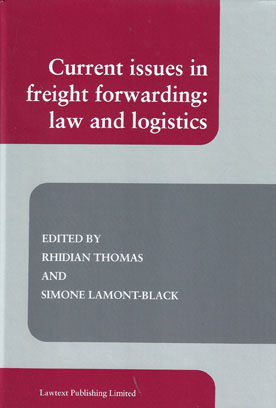
The law relating to freight forwarding is fraught with difficulties. Diverse matters overlap and the law relating to carriage co-exists awkwardly with contracts for the provision of services. There is no uniform regime for intermodal or multimodal carriage, and no precise definition of the business, duties and responsibilities of a freight forwarder.
The complex overlap of issues relating to the carriage of goods, the characterisation of the freight-forwarding business and the resulting different approaches set out in national laws and standard terms and conditions has led to the compilation of this comprehensive book with the aim of assessing the latest developments in the varying legal regimes and voluntary initiatives among cargo interests and freight forwarders.
Inherent in the freight-forwarding business is the often fast and fluid nature of contracting, with very few contracts being reduced to writing and even fewer where the express incorporation of standard terms can be proven.
With the ever expanding services undertaken by freight forwarders, in effect creating much broader logistics and supply chain arrangements, the traditional framework may no longer be suitable or sufficient to cater for all needs and may not fulfil the expectations of the logistics customer. The contributors to this book examine all aspects of this fascinating and vital aspect of modern logistics, providing